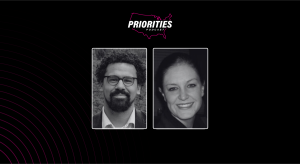For data that’s public and usable, Manhattan unveils BoardStat

Manhattanites just received a new tool to check the status of their neighborhoods courtesy of Microsoft and the local civic tech group BetaNYC.
Unveiled Saturday at the city’s 311 Data Jam for the National Day of Civic Hacking, the tool is called BoardStat and is designed to give residents and neighborhood groups a “hyperlocal” view of 311 service requests in Manhattan’s 12 community districts. Gale Brewer, Manhattan’s borough president, said the launch of BoardStat unlocks valuable data that can now be used by the digital neophyte, seasoned technologist or any of the 12 community boards managing Manhattan’s districts.
“We passed a first-in-the-nation Open Data Law and we’ve published more than 1,500 data sets with 750 million rows of data, but it’s not enough — the data doesn’t just need to be public, it needs to be usable,” said Brewer, who authored the original text of the city’s Open Data Law. “Thanks to BetaNYC, our partners at Microsoft, and the community board members and staff who helped with development, we now have BoardStat: a tool that will help our community boards and any member of the public put 311 data to use answering real questions and solving real problems.”
The platform contains a set of 12 dashboards — one for each district. Users get a map of services requests to see where residents are submitting complaints about potholes, rodent infestations, graffiti and other problems. The tool enables searches by date, agency and visualizes complaints down to the street level.
There is also “Top 10 Complaint Types” feature that delivers a bar chart of the top 10 district complaints for a selected time period. District board members and the community can see the top issues affecting their neighborhoods for a certain month, season, or year, and they can learn exactly where the issues are popping up. Illegal parking data, for instance, could fuel parking enforcement strategies, signage placement or roadway plans.
BetaNYC Executive Director Noel Hidalgo said his team of civic tech and open data volunteers have worked with Microsoft and Manhattan’s community boards for the last 11 months to make sure BoardStat could provide valuable intelligence that could also benefit the public.
“Now, we launch a public beta of BoardStat to provide all New Yorkers with a simple dashboard to look at service request trends, location-specific issues, and how requests are assigned to agencies,” Hidalgo said. “In the coming months, we’ll be launching a series of public education classes to ensure all New Yorkers can read their own data.”
BoardStat is built on Microsoft PowerBI, a business intelligence tool that provides enterprise-level analytics. Microsoft currently advertises PowerBI to the public sector by highlighting its ability to improve intelligence in education, healthcare, the environment and economic development. The categories are more geared toward federal and state agencies, but with NYC’s implementation, cities may have a new reason to investigate the platform.
To ensure BoardStat’s sustainability, Microsoft’s team has worked closely with Brewer’s office, it says, and BetaNYC to teach them how to replicate the PowerBI dashboards and create new ones with additional data.
BoardStat is a replacement for 311 briefings “held for a time” called CityStat, Brewer’s office reported. Those reports were required by a transparency law passed in 2005 that requires the city give periodic updates on 311 data. Brewer said BoardStat enables the city to eliminate the data work with a platform that automatically updates.
“My dream is for every community board to have a [BoardStat] screen like this in every community board office, in every community board location where you meet and to be able to show the data so the public can see what is going on, on their block and in their neighborhood,” Brewer said.





